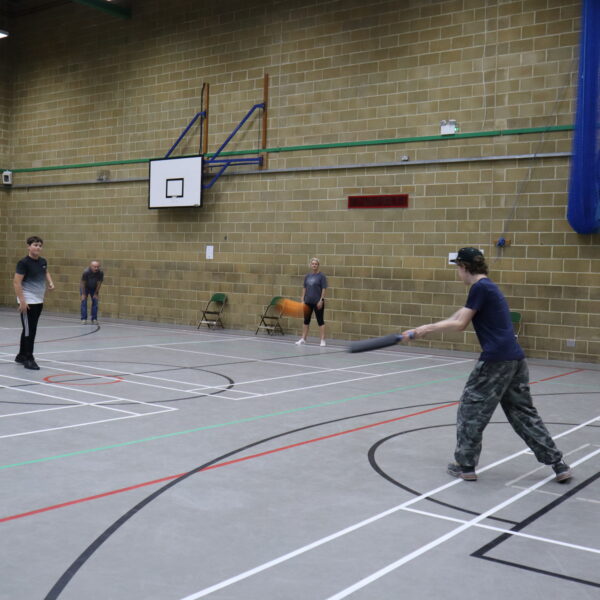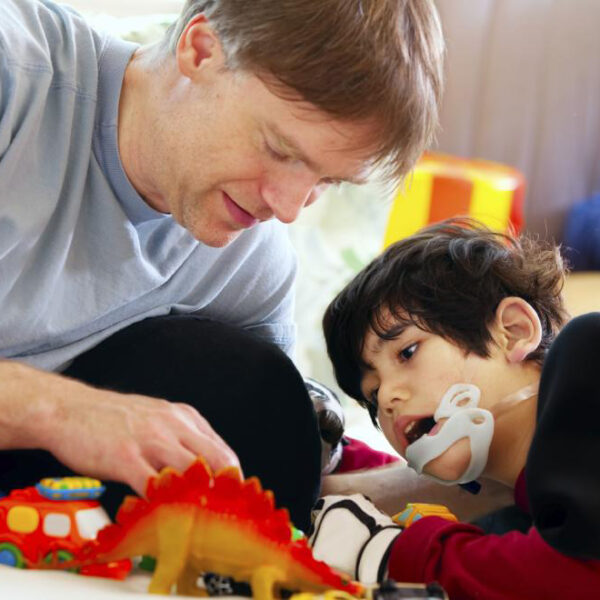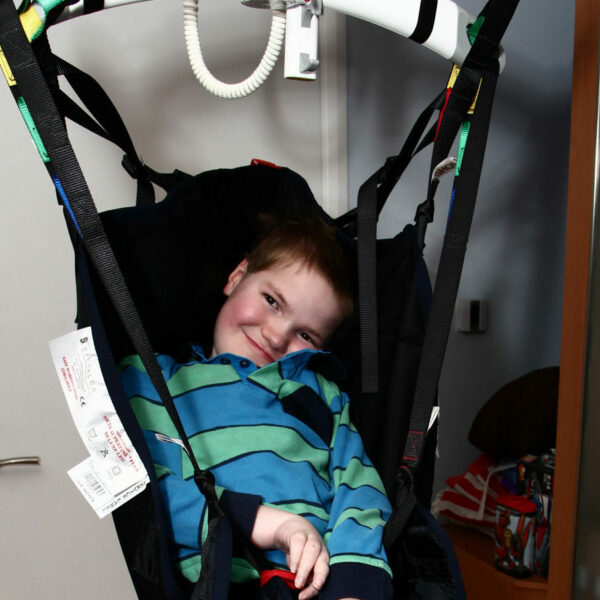Short breaks & direct payments
If you think you need a short break or respite from caring for your child (under 18), there are two types available; ones you need a social care assessment for and ones you don’t. If you have a social care assessment that agrees you need a short break, you may get a direct payment so you can choose and pay for this yourself.
Are you caring for a young person with SEND (18+)? Find out more about social care for adults here.
Short breaks that don’t need an assessment
Some short breaks are ‘universal’ which means they are open to all children, including those with SEN and disabilities. Others are ‘targeted’ and may require your child to meet certain criteria such as getting Disability Living Allowance or having an Education, Health and Care Plan. You may have to pay something towards the cost of these universal and targeted services yourself.
Clubs, activities and holiday schemes
To get this kind of short break, you’ll need to contact the providers yourself to find out what they offer, who it’s for and how much the cost to you will be. Be aware that some activities may be full and have a waiting list.
Both East Sussex and Brighton & Hove maintain a list of the short breaks providers in their area. You can get information about short breaks on the pages below:
Short breaks for all children with SEND in Brighton & Hove
Universal and targeted short breaks in East Sussex
You can also search for specific short breaks providers for children and young people with SEND on each local authority’s Local Offer directory
East Sussex short breaks providers on the 1Space directory
Brighton & Hove short breaks providers on Local Offer directory
Leisure discount schemes
For both schemes, you will need to complete a form and go on your local disability register. You will also need to provide proof of your child’s additional needs such as their EHC plan, or award of DLA or PIP.
Read more about Brighton & Hove’s Compass Card leisure discount scheme
Read more about East Sussex’s i-go card leisure discount scheme
Childcare
Download our fact sheet on Choosing childcare [pdf 790kb], for advice on what to look for when finding the right kind of childcare.
Parents of pre-school children are entitled to free early years childcare. Depending on your income you may also be able to get help with childcare costs through tax credits.
Your childcare providers can also apply for some additional funding to successfully include children with additional needs. This includes after school and holiday schemes, not just early years provision. Read more about childcare inclusion funding in our Early Years section.
Short breaks and respite that need a social care assessment
Short breaks such as overnight stays or specialist services may be available for children and young people with higher level needs.
You will need a social care assessment to decide if your family can get this type of short break or respite.
How to get a social care assessment
- See East Sussex eligibility criteria for specialist short breaks services in their Short Breaks statement (2022-2027)
- See Brighton & Hove’s latest information about eligibility for specialist short breaks services
If your child’s needs fall into this group, you can ask to be assessed for a specialist short break. Contact:
- Brighton & Hove: Front Door for Families on [email protected] or call 01273 290 400. They will manage any referral to the Specialist Community Disability Service.
- East Sussex Children’s Disability Social Care and Respite, Tel: 01323 464222
If your child doesn’t meet the eligibility criteria for assessment via the children’s disability team for your area, you can still contact your local council’s main ‘front door’ service for social care support.
In Brighton & Hove, this is also Front Door for Families; in East Sussex, this is called the Single Point of Advice. You will need to explain your family situation and why you think you need urgent support. They may then refer you to a social worker for further assessment.
Some children with long term, complex, health care needs may qualify for social care arranged and funded by the NHS instead of, or as well as, social care.
Read more about getting a social care assessment. You can download our Short Breaks fact sheet (pdf 700kb) .
Types of short break that follow from an assessment
- direct payments (the most common)
- overnight stays in residential accommodation or via a link or foster family
- outreach services to help your child or young person access activities in their community
- home support sitting services
Direct payments
Direct payments are the most common form of help getting a short break. If you have a social care assessment that agrees you need a short break, you may get a direct payment so you can arrange and pay for services yourself.
The amount you get depends on how much support the assessment says your family needs. It is meant to be equivalent to getting that service from the local authority.
What can you use direct payments (DP) for?
Unless there are exceptional circumstances you cannot use direct payments to employ a close relative who lives in your household, although you can use it to employ a relative who lives elsewhere.
Local authorities have a duty to offer direct payments: the law says they must tell you about direct payments and support you if you wish to take these up.
How do direct payments work?
You will need to keep records of how the money is spent, for example receipts and bank statements, or you can opt for a managed account or a pre-paid card.
PAs and becoming an employer
If you use your DP to pay for a PA or personal assistant, you will be their employer. This means you will have to find, recruit, train and pay your PAs including dealing with tax and national insurance. You will also have to arrange DBS checks, insurance cover and work out annual leave entitlement.
You may be confident to do all this yourself but there are also services that can give you help and support.
Helping yourself
If you are confident in dealing with deductions for tax, National Insurance, holiday and sick pay you can use the guide from HMRC. Visit www.hmrc.gov.uk.
Carers UK also produces a helpful direct payments guide to make the process easier – visit the Carers UK website.
Getting help from other organisations
If you need more support, People Plus runs a Direct Payments Service for both East Sussex and Brighton & Hove that supports parents of disabled children and disabled adults using direct payments. They can help with issues like finding or recruiting a PA, training for a PA, or tax and insurance. They can also give advice and support about being an employer, and payroll services. Get contact details of your local People Plus Independent Living Service.
Possability People also offer a payroll service and supported bank accounts for people in Brighton & Hove and East Sussex.
Finding a PA
Finding a PA for your child or young person can be the most challenging part of the process. Some options include:
- Asking your child’s school – they may have a notice board you can use to advertise PA hours to TAs.
- People Plus is paid to provide free advice and help around hiring a PA, and you can use their recruitment centre to place ads and search for a carer. They cover East Sussex and Brighton.
- Possability People has PA Noticeboards on their website for Brighton & Hove and East Sussex, where you can advertise and search for a carer for your child.
- Support With Confidence is a national scheme that provides a register of approved carers, all of whom are trained and checked. Check out the Brighton and Hove register here, and the East Sussex register here.
- Gumtree is a website where you can place job adverts free of charge.
- You could also try posting job adverts on local university and college careers service websites, such as the Sussex University Careers and Employability Centre.
- You can ask other parents for their tips on where to look
It’s worth remembering that parents and disabled children and young people have the legal right to disregard discrimination laws, if you want a male carer or a younger person for example.






